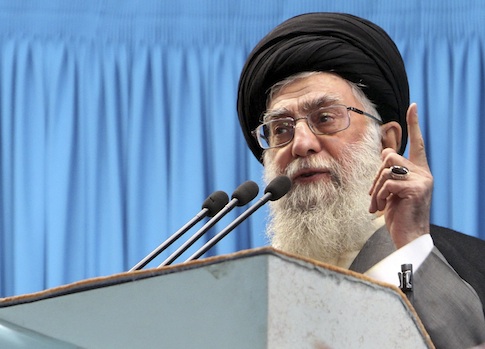A research organization disputed on Sunday the existence of a fatwa, or religious ruling, against the development of nuclear weapons by Iran’s supreme leader.
The Middle East Media Research Institute (MEMRI) said that Iranian references to such a fatwa by Supreme Leader Ayatollah Khamenei were an attempt to deceive the international community, particularly the United States, in order to persuade it to ease economic sanctions on Iran.
"An investigation by MEMRI reveals that no such fatwa ever existed or was ever published," said a report released by the organization. "Media reports about it are nothing more than a propaganda ruse on the part of the Iranian regime."
President Barack Obama expressed willingness to settle differences with Iran peacefully during his speech to the UN Security Council last week.
"The Supreme Leader has issued a fatwa against the development of nuclear weapons," Obama said, which offered the basis for a meaningful agreement.
An extensive study of Iranian websites listing fatwas issued by the Supreme Leader failed to find any referring to development of nuclear weapons, according to MEMRI.
What do exist are statements by various Iranian officials beginning in 2005 referring to such a ruling, MEMRI said. In a Washington Post op-ed last year, then-foreign minister Ali Akbar Salehi said Khamenei had made "a binding commitment" on the subject.
"He issued a religious edict—a fatwa—forbidding the production, stockpiling and use of nuclear weapons," Salehi wrote.
Other senior officials have made similar references to Khamenei’s fatwa over the years. The head of the Iranian judiciary, Ayatollah Sadeq Amoli Larijani, said, "The fatwa that the Supreme Leader has issued is the best guarantee that Iran will never seek to produce nuclear weapons."
The MEMRI report, which was written by Yigal Carmon, a former Israeli intelligence official, and Ayelet Savyon, head of its Iranian desk, said the fatwa claim was intended to get around the West’s skepticism over Iran’s insistence that it is only interested in using the atom for peaceful purposes.
The fatwa attribution "is a propaganda effort to propose a religiously valid substitute for concrete guarantees of inspectors’ access to Iran’s nuclear facilities," the report declared. Even if Khamenei made a declaration in the vein of the alleged fatwa but not in the formal form of a fatwa it merely constituted a statement by the Supreme Leader in his political role and was not a binding fatwa by a religious authority, according to the researchers.
A fatwa is always set out in a question and answer format in which the religious leaders issues his ruling as a reply to a question.
A question as to whether it was forbidden to obtain nuclear weapons posed to Khamenei last year on his Facebook page by a group called The Light of Freedom drew a curt response, according to MEMRI.
"Your letter has no jurisprudential aspect. When it has a jurisprudent position, then it will be possible to answer it," Khamenei said.
